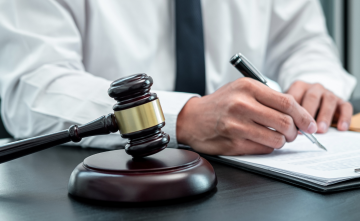I am studying in the third year of the State University of Economics and Technology.I specialize in contractual, economic and corporate law, in particular, I provide consultations and write articles.
The general assembly as its highest body plays an important role in the activity of a joint-stock company. The current legislation regulates in detail the procedure for convening, conducting and making decisions by general meetings, but at the same time, it provides for the possibility of appealing such decisions by shareholders. The same decision, which will be the object of the appeal, is inherently an act of a non-normative nature, which gives rise to legal consequences related to the regulation of the company's economic activity.
Peculiarities of appealing the decisions of the general meeting of shareholders:
General meetings can be held in three forms, namely: face-to-face (face-to-face voting), electronic (through electronic voting) and remote (through polling). In any case, the rights granted to the shareholder (the right to receive notice of the meeting, the right to submit proposals regarding the agenda of the meeting, the right to ensure proper preparation for the meeting, etc.) may not be violated during the meeting. In contrast to these legislative requirements, in the judicial practice of resolving corporate disputes, one can quite often encounter gross violations of the rights of shareholders regarding participation in holding general meetings, or clear inconsistency of decisions with the norms of current legislation. Analyzing the above, the question arises about the grounds, in the presence of which, it is possible to appeal to the court in order to appeal the decisions made by the general meeting. Conditionally, these reasons can be divided into those related to violations of shareholders' rights, and those that violate the procedure for holding meetings. The first type includes non-notification of the shareholder about the meeting, adoption of the disputed decision in his absence and other obstacles that prevent the shareholder from participating in the general meeting and violate his rights to participate in the management of the company. The second group of reasons should include: non-compliance of the adopted decision with the norms of the law, violation of the procedure for convening and holding meetings specified in the law, the statute or the relevant regulation of the company, making a decision without complying with the quorum requirement, making those decisions that are not part of the approved agenda, lack of meeting minutes, etc. regarding the statute of limitations in this category of cases, the decision can be appealed within 6 months from the date of its adoption.
Procedural features of appealing decisions of general meetings:
First of all, it should be noted that there is a so-called presumption of legitimacy of the decisions of the management bodies of the company, that is, the decisions will be considered to be in accordance with the current legislation, unless the court determines otherwise. Therefore, the shareholder who files a lawsuit should provide the necessary evidence of the violated right stated in it in order to make his legal position convincing. It is also worth noting that the resolution of corporate disputes is assigned to the jurisdiction of commercial courts, and it is to them that a lawsuit should be filed. In the statement of claim, it is necessary to briefly state the circumstances of the case, the claims, the circumstances that confirm them, indicate the rules of law that have been violated, describe the used methods of pre-trial settlement of the dispute, as well as substantiate in detail the reasons for the illegality of the decisions made and indicate the list of evidence. In addition to the fact that the court will find a violation of the requirements of the law regarding holding a general meeting, it will also establish the fact that the adopted decision will violate the rights and interests of the shareholder. If the subject of the appeal is the non-inclusion in the agenda of the proposals submitted by the shareholder, the court may oblige the company to consider the issues proposed by this shareholder.
legal services for business when appealing the decision of the general meeting:
Since the appeal process requires going to court, a legal protection of business is extremely important. A business lawyer will not only conduct a legal analysis of the situation, but also prepare the necessary procedural documents, collect evidence and represent the client's interests in court. Therefore, the involvement of a qualified lawyer for business when applying to court will help increase the probability of achieving the desired results and restoring the violated rights.
































